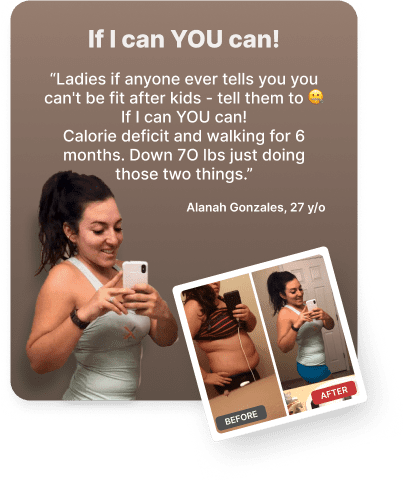Though it doesn’t get talked about as much as it should, Polycystic Ovary Syndrome (PCOS) is a relatively common hormonal disorder in women of childbearing years that, if left untreated, can lead to problems with fertility and can also make weight loss difficult.
Women who suffer from PCOS have increased levels of androgens, or male hormones, but are also “insulin-resistant,” meaning their cells no longer respond to insulin acting as the “key” to allowing glucose into the cell to be used as fuel.
This glucose remains in the bloodstream, increasing the risk of diabetes, and is eventually converted to stored fat, resulting in obesity.
Losing as little as 10% of your body weight can greatly relieve symptoms of PCOS while also improving insulin sensitivity, allowing for additional weight loss. In general, a high fiber, anti-inflammatory IIFYM diet rich in fruits and vegetables and complex carbohydrates will promote healthy weight loss.
Here are ten foods that can help you with PCOS weight loss:
1. Broccoli, Cauliflower, and Brussels Sprouts
Cruciferous vegetables including broccoli, brussels sprouts, and cauliflower act as estrogen detoxifiers and will help reduce the glycemic load of any meal you pair them with. They balance the sugar load of the meal, allowing available insulin to do its job and convert sugar to energy, not fat.
2. Leafy Green Vegetables
Green vegetables like kale, spinach, lettuce and chard are excellent low-calorie, high fiber, low glycemic index foods packed with essential vitamins and minerals. They improve digestion and nutrient absorption, but most importantly improve glucose regulation and endocrine function.
3. Beans and Lentils
Beans provide fiber, plant-based protein, and iron in as little as one cup. Choose black beans, pinto beans or chickpeas and use them in soups, wraps, or to top your salads.
4. Sweet Potatoes
White potatoes, especially fried potatoes, are carbohydrate-dense and should be avoided on a PCOS diet. Choose sweet potatoes instead as they are higher in fiber, lower in sugar, and have a lower glycemic index.
5. Blueberries and Strawberries
Blueberries, raspberries, blackberries, strawberries and cranberries are rich sources of immune boosting, cancer-preventing, heart-protecting antioxidants, including polyphenols, flavonoids, and other phytonutrients that fight inflammation.
6. Tomatoes
Tomatoes (and brightly colored bell peppers) are low calorie and also loaded with antioxidant phytonutrients plus a rich assortment of vitamins and minerals. Tomatoes contain carotenoid or lycopene, shown to combat PCOS. Tomatoes provide more lycopene when processed or cooked, as lycopene is released from the tomato’s cell walls.
7. Almonds and Walnuts
Nuts provide protein, fiber, antioxidants, vitamins, and minerals and are a satisfying snack any time of the day. Nuts also supply plant sterols and heart-healthy monounsaturated fats to help lower cholesterol. A study published in the European Journal of Clinical Nutrition, shows that nuts improve insulin, androgens, and cholesterol levels in women with PCOS. When eaten with sweet fruits or other high glycemic foods, nuts and seeds may help lower their glycemic index and improve glucose-insulin response.
8. Eggs
Eggs are an excellent low-calorie protein to include with meals and snacks and provide a variety of nutrients that improve PCOS. The majority of the protein is in egg whites, but don’t discard the yolk as it provides omega 3 fatty acids, iron, folate, thiamin, and essential vitamins. Eggs are also rich in choline, an essential nutrient for pregnancy.
9. Fatty Fish
Omega-3 fatty acids found in fish can help to improve cholesterol and insulin levels in PCOS. Choose fish wisely, though… while high in heart and brain-boosting omega 3 fatty acids, many fatty fish also contain unacceptable levels of mercury. Your best options include sardines and anchovies, herring, mackerel, Pacific salmon and freshwater trout.
10. Olive Oil
Olive oil contains many antioxidants that can lower symptoms of PCOS, especially heart-damaging LDL “bad” cholesterol, without adversely affecting your HDL “good” cholesterol. There is some research that suggests these cholesterol-lowering effects are greater if you choose extra-virgin olive oil. Extra virgin oil is more natural, less processed and contains more heart-healthy antioxidants.
Struggling with PCOS weight loss? We can help.
Forget calorie counting. If you haven’t already calculated your macros with our FREE macro calculator, that’s the best place to start getting your diet on track while eating the foods that you love.







